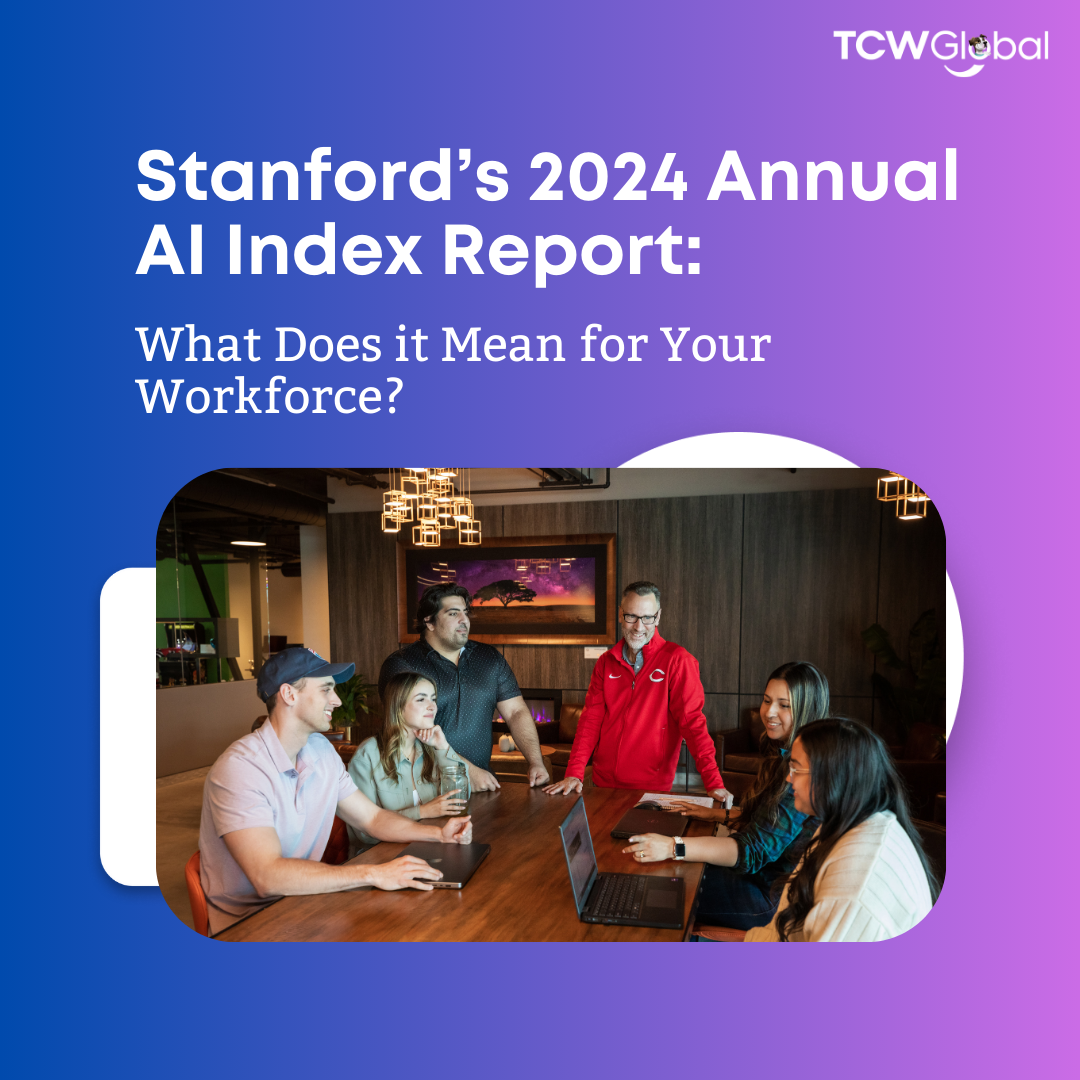Stanford’s 2024 Annual AI Index Report: What Does it Mean for Your Workforce?
May 10, 2024

I asked Siri how many times 'AI' has been searched in the past five years, and—no surprise—she dodged the question. So, I turned to Google Trends for some answers. What I found was nothing short of a cultural shift.

Between 2022 and 2023, the number of Google searches for "AI" has absolutely skyrocketed. In line with this, Stanford University has published a comprehensive 500+ page long report that measures the trends over the past year: the 2024 AI Index Report.
What key takeaways can HR professionals and corporate leaders take from the report in regard to their workforce? No need to ask ChatGPT for the answer, we have the breakdown for you here.
Stanford's 2024 Annual AI Index Report Summary
AI makes workers more productive and leads to higher quality work.
Artificial intelligence has been shown to enable workers to complete tasks more quickly and produce higher quality work.
- A meta-analysis found that workers who language based AI productivity enhancing tools completed tasks 26-73% faster than those who did not use AI.
AI narrows the performance gap between low and high skill workers.
- Harvard Business Review completed a study where both low skill and high skill consultants were given access to language based AI productivity enhancing tools. Both groups experienced performance boosts, by the lower skilled consultants experienced a larger gain in performance than the high skill consultants.
AI tends to enhance quality and productivity, but overreliance on technology can impair a worker’s performance.
- A study gave recruiters AI and told one group that the AI was trustworthy and high performing and the other group that the AI was known to make errors. The group with the “good AI” had worse performance, which the study explains could be caused by the fact that the recruiters overly trusted the AI’s results and became complacent.

AI beats humans on some tasks - but not all.
AI has achieved levels of performance that surpass human capabilities across a range of tasks.
- AI has surpassed human baseline benchmarks on tasks like image classification, visual reasoning, and language comprehension.
- AI fails to exceed human ability for tasks that require more complex cognition, such as commonsense reasoning and competition-level mathematics.
People are more nervous about AI’s potential impact.
In 2023, Ispos ran a survey on AI sentiment and revealed that 52% of people feel nervous about AI products and services, which was a 13% increase from the number in 2022.
- The survey also revealed that 36% of people fear that AI may replace their job in the next 5 years. (Wondering how to tackle AI fears within your organization? Check out this blog!)
Interested in what the rest of the report has to say about AI trends regarding topics like diversity, education, policy, and more? Check it out here: HAI_2024_AI-Index-Report.pdf (stanford.edu)
Cutting-Edge Technology for Your Contingent Workforce
TCWGlobal uses powerful, innovative technology to help you manage your contingent workforce. Click here to learn more about StaffingNation, our vendor management system.
